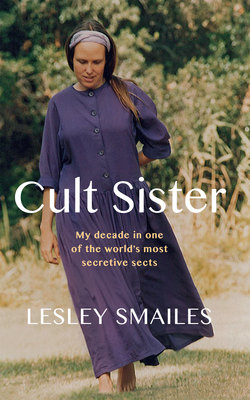Читать книгу Cult Sister - Lesley Smailes - Страница 16
На сайте Литреса книга снята с продажи.
11
ОглавлениеBrother Leonard met us at the door of the camp in Nevins Street. He had just spoken to the elder at the morning call and had heard that we would be arriving soon. His eyes smiled at us. A knowing smile. Like we had been up to some monkey business, and he knew it.
We were shown through to what had been the sisters’ dining area. A thin curtain separated it from the rest of the dining room and the kitchen. It felt flimsily private.
A few days later we moved over to an apartment in Hoyt Street which we had to ourselves. To enter the place, I had to stick my hand through a pigeon-sized hole in the door and reach around till I found a rope. Pulling on the rope slid a locking plank out from its wedge against the door handle and the bottom step. When the plank fell, the door swung open.
As soon as my distressed mother found out I was married, she asked Grant to go and visit us to check that I was okay. We had only been staying in Hoyt Street for a couple of days when he came down from Boston to visit for the night. He brought my mail and also the passport I had left with them. The main purpose of his visit, though, was to ‘check out’ Thomas for my mom.
I worked late into the night before his arrival, sweeping the peeling walls and filthy floors, scrubbing, sterilising and washing. I put up pretty curtains I had sourced at the Nevins camp. Thomas brought home some discarded flowers he’d found and I had fun cutting off the dead heads and arranging them in the most beautiful container I could find.
I knew Grant loved potatoes and so I made the best potato soup I could, with fresh asparagus. One thing I could do very well was make soup. My mom had taught me. It had to taste good before it cooked. That was the secret.
Grant brought a stack of letters from South Africa, and one from England. It had Stewart’s beautiful, artistic handwriting on it. I opened it first. He addressed it to me like he often did. ‘Lesley Darling.’ ‘What is he doing, calling another man’s wife his darling?’ Thomas asked disdainfully.
Stewart had found out I was married. He was already in London, waiting for me. He had found a place for us to share and had fixed it up so that it was ready for me.
I struggled to control my anger when Thomas forbade me to write back to him. By this point I really resented him. I thought he had taken advantage of me, marrying me when I was so vulnerable and I disliked the way he treated me like some kind of possession. I belonged to him. I had taken on his name and I was his.
Now I struggled with a dilemma. Should I leave with Grant and go to my Stewart in England, or should I stay with Thomas and the sisters? My zeal to be right and my strong teenage arrogance held me back. I had done the deed, made a commitment and now I had to be a dutiful wife.
From this time one memory vividly stands out. I recall walking with Thomas from Hoyt Street to the camp at Nevins Street. I was happily skipping along the pavement in front of him when he stopped me. ‘A sister is to walk a few steps behind her husband. Let me go ahead,’ he said. My heart sank. I was being reprimanded! My dad had taught me that ‘ladies go first’ but the custom in the Church dictated otherwise. From then on I always walked a little behind him.
Poor Thomas. He felt it was his husbandly duty to constantly correct me and put me in my place. I was often in his bad books. I remember him scolding me soon after Grant left, seated at one of the dining-room tables at Nevins Street. I think it went on for over an hour. I felt wounded inside and also grew bored while I silently listened as he droned his reproof – it was mostly about how proud I was and how I should be more humble.
Sister Nediva was making food in the kitchen. Peeping at her and drumming my fingers on the table, I wished the lecture would end. He was embarrassing me. It seemed like I was getting a public rapping over the knuckles. Humiliated, I wanted to laugh and cry at the same time. I had begun to think it was a big blunder marrying him. But it was too late now. My pride would not allow me to admit that I had made a mistake. He was right. I was too proud for my own good.
